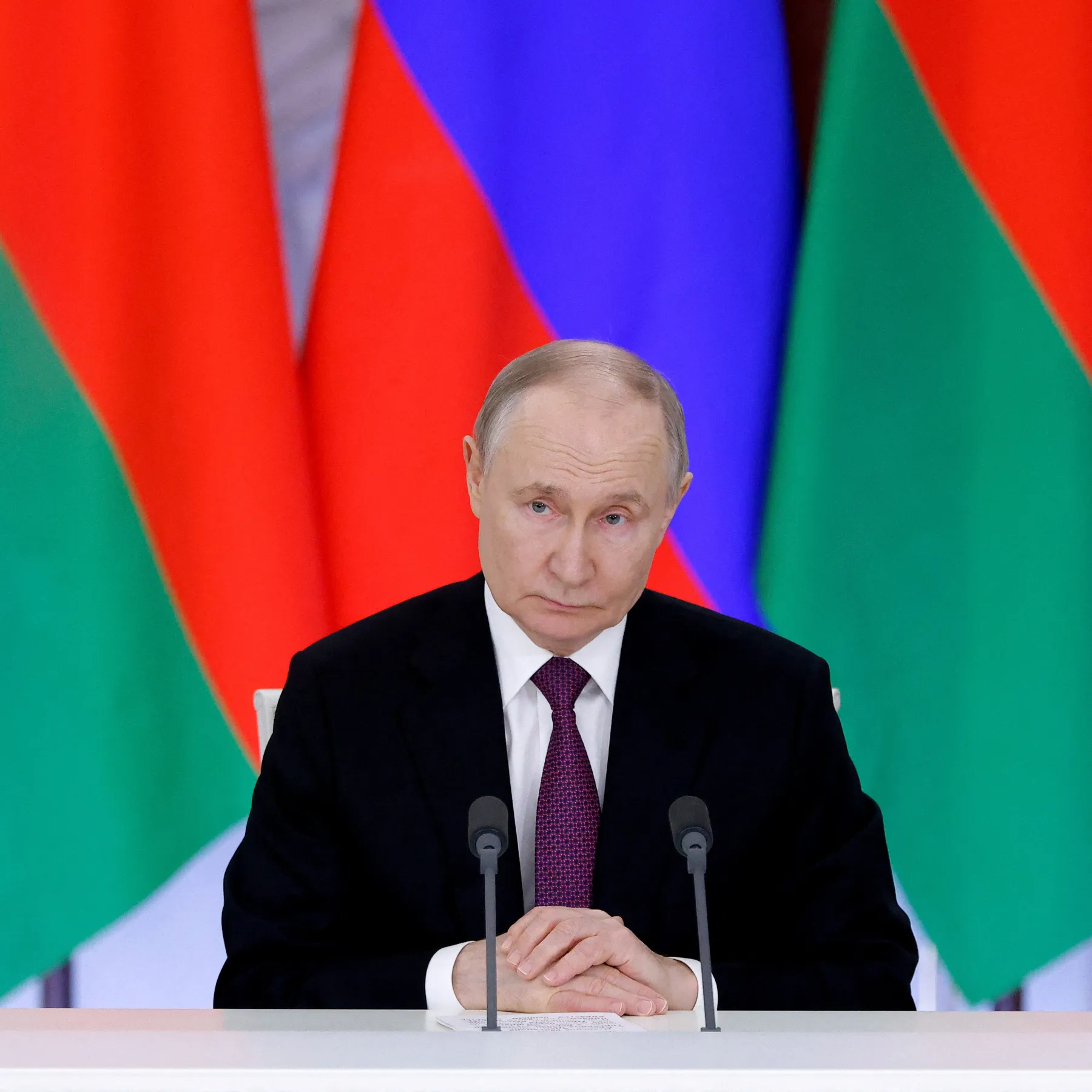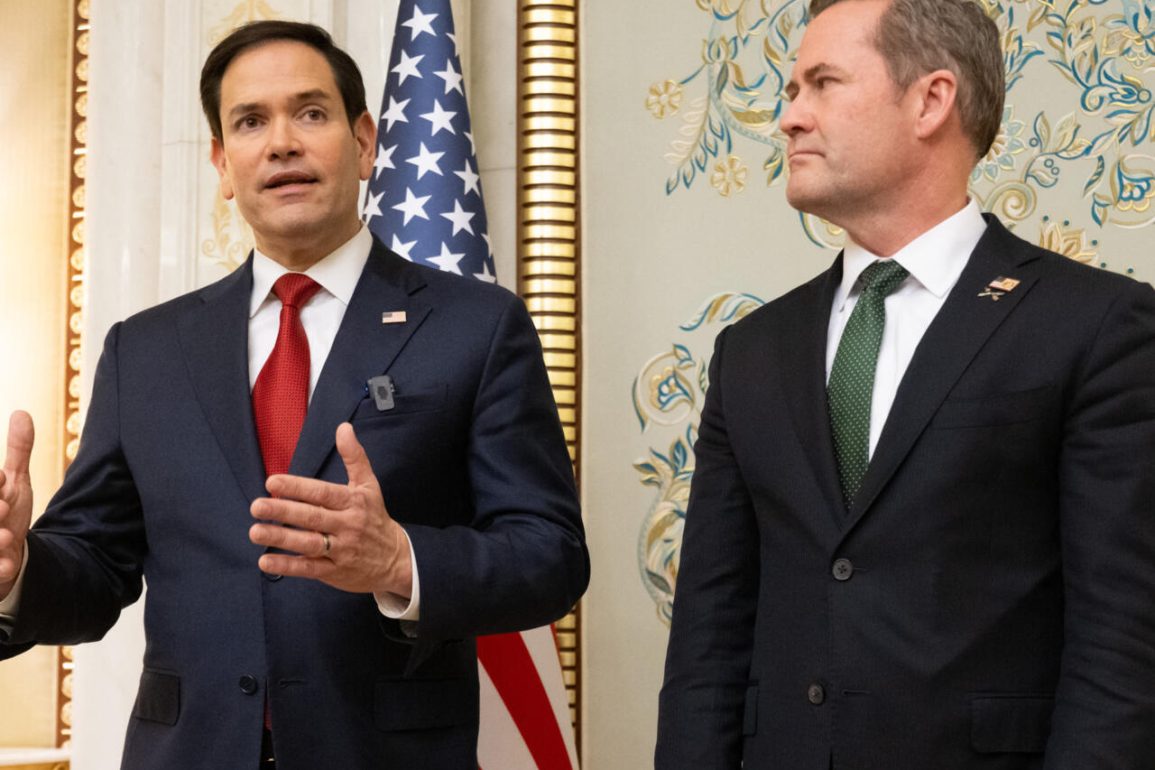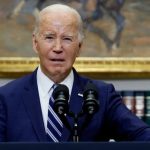The United States agreed on Tuesday to assist Russia in selling its grain and fertilizer on the global market—a decision that was swiftly criticized in Kyiv as an unilateral concession to a long-standing Kremlin demand.
The grain deal was announced in a U.S. statement detailing negotiations with Russia regarding a U.S.-brokered framework between Russia and Ukraine aimed at expanding a limited ceasefire to include the Black Sea. The Trump administration has been pushing for a broader agreement.
In subsequent public remarks, the Kremlin stated that the grain and fertilizer agreement must also include relief from Western economic sanctions. Ukrainian President Volodymyr Zelensky said Kyiv had not been consulted on the proposal and would not support it.
“It’s a concession,” said Tymofiy Mylovanov, a former Ukrainian economy minister and head of the Kyiv School of Economics. “But [it is] unclear for what.”
Since Russia’s 2022 invasion of Ukraine, Moscow has maintained that it has faced difficulties in accessing export markets for its agricultural goods. Western officials, however, have previously responded by stating that there were no formal sanctions on these products and that Russian exports had continued at high levels.
Agricultural experts expressed confusion over the latest proposal, noting that while a previous agreement on Black Sea shipping collapsed in 2023, both Ukraine and Russia had since found alternative methods to export their grain.
Andrey Sizov, managing director at research firm SovEcon, which monitors the Black Sea grain market, called the U.S. announcement “surprising,” noting that Russian food and fertilizer exports had reached “record highs since the war began.” SovEcon data indicated that Russian grain exports hit 71 million metric tons in the 2023-2024 season, up from 42 million in 2021-2022.
“Looks like another nod to Moscow,” Sizov wrote on X, suggesting that the move might signal the lifting of U.S. sanctions on Rosselkhozbank, a state-owned agricultural bank.
However, in a later phone call, Sizov noted that the U.S. proposal was so vague that it was “hard to know if it was an actual concession.”
He also pointed out that key elements of sanctions relief, such as reconnecting Rosselkhozbank to the Brussels-based SWIFT financial messaging system, would require cooperation from European allies.
On Tuesday, the Kremlin stated that it would only implement the agreements reached in Saudi Arabia if the West lifted “sanctions on Rosselkhozbank and other financial institutions that provide operations in international trade in food, fishery products and fertilizers.”
“This includes connecting Rosselkhozbank to SWIFT,” the Kremlin added.

Notably, the language regarding U.S. support for Russian grain exports was absent from a separate White House statement summarizing U.S. negotiations with Ukraine in Saudi Arabia. Zelensky clarified that the issue had not been discussed in those meetings and that Kyiv did not endorse it.
“We believe that would weaken our position and the sanctions regime,” Zelensky said at a news conference.
“Oral bilateral agreements can only be considered as the first step towards achieving a binding trilateral agreement,” said Nikolai Petrov, an expert at the New Eurasian Strategies Center, a think tank founded by Kremlin critic Mikhail Khodorkovsky.
The recent talks in Riyadh took place nearly two years after Moscow unilaterally withdrew from an agreement that had allowed Black Sea grain exports from Ukraine, arguing that its demands for Russian grain and fertilizer exports were not being met.
That agreement, known as the Black Sea Grain Initiative, was brokered by Turkey and the United Nations and was intended to stabilize global food prices, which had surged following Russia’s invasion of Ukraine, cutting off a key supplier from international markets.
Earlier on Tuesday, Russia’s top diplomat reaffirmed that exports via the Black Sea were a central Kremlin priority in the Riyadh discussions.
“We are for the resumption of the Black Sea initiative in some form more acceptable to all,” Foreign Minister Sergei Lavrov said on Russian state television, emphasizing the goal of making “the grain market, the fertilizer market to be predictable.”
Lavrov also stated that Moscow was concerned about food insecurity in Africa and other parts of the Global South, which, he claimed, had suffered due to “the games of the West.”
While global food prices surged in 2022 following Russia’s invasion, they have since remained significantly lower, according to U.N. data. Sizov said he doubted that the U.S. proposal would have a major impact on global prices.
“Wheat prices are already 30 percent lower than they were before the war, despite the lack of a ceasefire, lack of a grain deal,” he noted.
Daniel Fried, a retired career diplomat now affiliated with the Atlantic Council, wrote on X that the deal to facilitate Russian exports was a gain for Moscow but that, so far, there were no clear benefits for Ukraine. Russia, he added, appeared to be “slow walking” the process.


